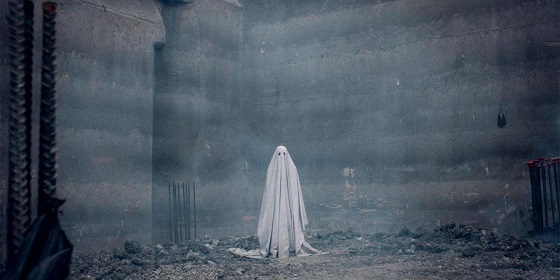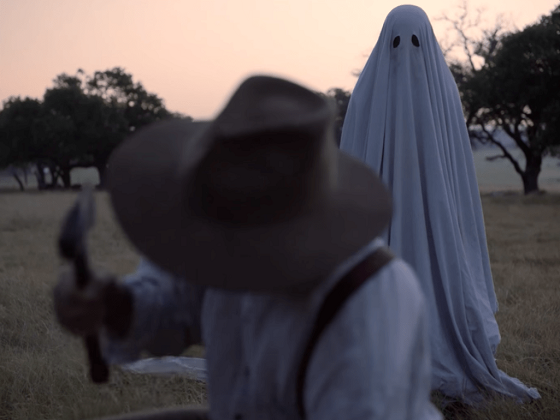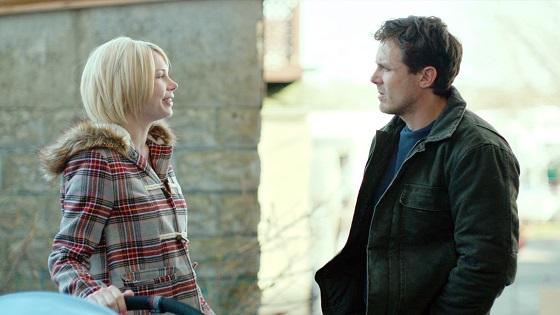Hey there reader. It’s been awhile.
I’d like to have a conversation for a minute. A serious one. This is going to be kind of difficult and a very different kind of writing for this site. If you’re not interested in having a frank conversation about mental illness than you can go ahead and skip this one. My colleagues are all fabulous writers and I’m sure you’ll get a lot from their work. Consider this paragraph a trigger warning and do as you will.
And with that out of the way, let’s talk.
I have missed a lot of deadlines. Reviews for Demolition and Wonder Woman each came late and without the requisite fanfare. I have a review for Moonlight on my hard drive that will probably never see the light of day. Most recently, I attended a screening of David Lowery’s atmospheric, thoughtful A Ghost Story with full intent to make that the second of my post-graduation articles (after Wonder Woman) and the next step on my path to become, I was sure, one of the most notable and intriguing voices in local film criticism.
I never wrote the article. I have also not attended a single screening or written a single word (either criticism or screenplay) since. Instead I went home to my cave of an apartment and never came out. It’s a shame. A Ghost Story is quite an accomplished film and I feel like I had something to say about it. While I will admit I think the film has become a tad overhyped by some in the critical community, it boasts lush, textured cinematography and a fascinating, elliptical narrative structure.
To many the film has been a surreal exploration of the passing of time and the nature of our existence. To me, however, the film was a shockingly complete metaphor for depression. Casey Affleck’s titular Ghost is still present in his death but unable to interact. When he does interact, it comes out as a haunting, flickering lights and china thrown across rooms. He is unable to nurture his loved ones or live a normal life, and is forced to just watch his world decay around him. This, to me, is exactly how depression feels.
Not to make excuses, but I believe this may be why that piece, or this very article you currently read, has been so difficult to write. I’ve had a Word Document open on two different computers for months, constantly nagging at the back of my head about the damn movie. Whenever I attempted to put my thoughts into words, all that emerged felt hollow, empty, disinterested. I felt that way a bit during the film as well. I’ve felt that way about a lot of things.
Depression has been a staple in both sides of my family, and in my own life it’s been a bit of a recurring theme. The larger, prevailing issue on my end at least has probably been less Clinical Depression proper but rather an anxiety disorder that often results in depressive symptoms. The sensation is that of stagnancy: I feel disconnected from the world around me, as though my actions have no impact. When I do finally act it feels as though it comes out in brutish, impulsive bursts, harming relationships and damaging my own well being. There’s also a sense of hopelessness there. I feel like I cannot change my disposition, and I feel as though those who remain around me merely tolerate it. Again, for those who have seen A Ghost Story, that film felt as though it was hitting on something.
Most of the time I can work through these feelings. I keep my head down, go to work, drink with friends, go to movies. For a period there, however, I was doing a lot of that: working too many hours, drinking too much with the wrong friends, spending too much money on my own collection. Drink. People. Movies. Work. Drink. It was right after a series of major events in my own life, many good, but far more bad, and I just had to keep in motion. Drink. People. Movies. Work. Drink. Things got lost in the shuffle. I felt more and more as though I was haunting those around me. I could have been throwing china across rooms.
In June of this year I made an attempt on my own life. It didn’t work, obviously. As a result, however, I was committed to a mental institution for five days. I was allowed no phone, no shoes (laces), no belt, no razor, no access to the outside world save two phones shared between all the patients and a visiting hour every day. I lived a longer five days than I think I ever have. When I got out, when speaking with coworkers about how they wanted to go home, I laughed as those words meant something different to me. Eventually I started going back into my rhythms though. I could watch movies, I could drink with friends (less so but still), I could go to work without incident. I was becoming me again.
I’m not cured, though. I don’t think you ever become cured. Depression never goes away. You just learn how to deal with it, and honestly while I think I’m doing better I’m no shining example. I haven’t been able to write, as anything creative hurt. I’ve been scared to contact my editors at this site as their ire would have felt like the whip. I still probably drink too much. I still spend days hiding in my cave of an apartment. I have been getting better though. It’s important for myself to know that and I hope you, dear reader, can know that.
I’ve always thought the idea of “Just letting people know they are not alone” was bullshit. Much of my life that form of platitude-as-comfort has always wrung empty and foolish. I’m not the only one who is depressed, but knowing that doesn’t make me any less depressed. It’s the words of those desperately attempting to empathize with someone they are looking at as broken. You don’t know my experience why try to make me feel better by acting like you do.
Being in a mental hospital kind of changed that.
We don’t talk about our friends or relatives who’ve been committed. We don’t talk about active attempts at suicide. We’re very open about depression but many now act like it’s cute. “Oh look at me I’m having a panic attack.” When I went in it felt like this was the end. It would be on my record every time I apply for a job or try to get an apartment. They’d do the security check, and oh, look at that we almost hired someone who can just off himself at any moment. I felt like I was broken and nobody would look at me the same. It felt like even if I got out of there I’d never get over it. I was kind of right.
I’ve been talking about A Ghost Story all this time but honestly it’s the other Casey Affleck vehicle about death and sadness that my mind goes to nowadays. I don’t think most people who saw Manchester by the Sea really understood it. People talk about how it revels in depression, how it’s a hopeless pit from which no goodness can be extrapolated. That view entirely misses the mark for me.
“I can’t beat it” is the line that broke me. “I can’t beat it”. When Lee Chandler (Affleck) says that, he’s speaking to his ex-wife and is referring to his grief and his shame. He can’t beat it and he can’t get rid of it. And no, no he can’t. But he can keep going. By the end of the film he’s a member of his community, he’s a watchful guardian over his nephew, he’s a good man. No, he can’t beat his grief but he can be a functioning person and he can have happiness.
Sorry if this article is getting too preachy or too small blog op-ed but I really felt a need to write this and put it out on the one platform I have. I also hope my editors remove this line but I mostly hope they feel it within their hearts to publish it and welcome me back to a site I love even if I’ve been in the wilderness. I want everyone who reads this and is in dire straits to know that you aren’t alone, and you are not broken. You can move on. But it’s going to take work and you cannot, I can’t stress this enough, CANNOT do it alone. Find a support group. Talk to your loved ones. Find happiness in your community and in what you do.
Finally I would just like to share the number for the Suicide Prevention Hotline. I know, I know, I’m just piling on the clichés but these people have genuinely helped me in some very hard moments and genuinely care. Depression doesn’t go away, but just because you can’t beat it doesn’t mean it needs to beat you.
Call: 1-800-273-8255
Good luck.








Comments on this entry are closed.